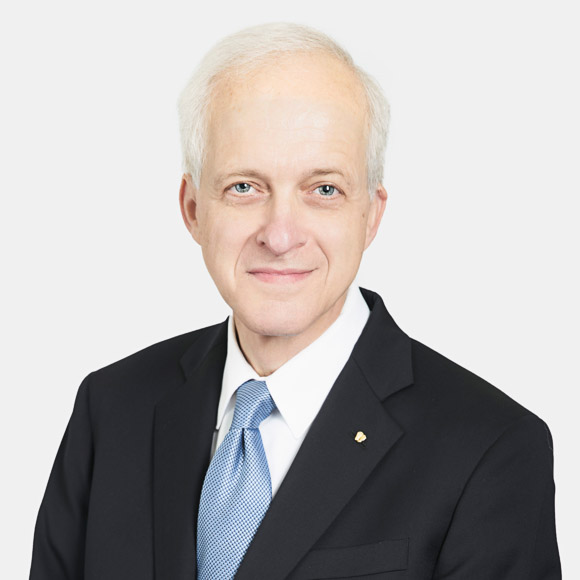Change of Course: Massachusetts Adopts But-For Causation—Mostly
by Paul V. Esposito
More than two things—death and taxes—are certain in life. There’s at least a third certainty: the law’s uncertainty about the proper standard governing proximate causation in tort cases. The concept creates confusion wherever it goes. It has mystified commentators, judges, and litigators for decades. It has now changed how the Restatement of Torts views the issue. That’s significant because the Restatement has strongly influenced states in formulating their standards. States like Massachusetts, which recently jumped on board the Restatement’s updated approach. Doull v. Foster, 2021 Mass. LEXIS 145.
Facts
Laura Doull needed nurse practitioner Anna Foster’s help regarding perimenopausal symptoms. Foster prescribed a topical medication but did not tell Doull that it could possibly cause blood clots. Almost three years later, Doull saw Foster three times complaining of shortness of breath. Foster examined Doull each time. Foster diagnosed Doull as suffering from a combination of effects from her long-standing allergies and asthma. Foster’s supervising doctor, Richard Miller, did not examine Doull.
Not long after Foster’s examinations, Doull suffered a seizure-like event. Doctors found a pulmonary embolism. They diagnosed her as having CTEPH, a rare disease in which increased pulmonary artery pressures cause heart failure. Doull had chronic blood clots. Surgery to remove them failed, as did further treatment. A few years after surgery, she died from CTEPH complications.
Prior to death Doull sued Foster and Miller for negligently failing to (1) get Doull’s informed consent about the medication, (2) diagnose the embolism sooner, and (3) supervise Doull. Her expert supported the allegations. Defendants’ expert testified that there was no evidence that the medication increased the risk of clotting. He disagreed that earlier diagnosis would have prevented CTEPH because it had been ongoing for months. Doull’s outcome would have been the same even with an earlier diagnosis.
A jury answered special questions finding: (1) defendants obtained inform consent; (2) Foster negligently failed to diagnose the embolism, but this did not cause Doull’s injury or death; and (3) Miller negligently failed to supervise Foster, but it did not harm Doull.
After the trial court denied plaintiffs’ post-trial motion, the Supreme Judicial Court took the case.
Analysis
The primary issue—one splitting the Court—involved causation. The majority held that in most negligence cases, but-for causation is the standard to prove a factual cause. Absent the allegedly negligent conduct, an injury would not have occurred. The standard is designed to connect conduct to outcome. Most courts nationwide and the Restatement require but-for causation in most cases to prove cause-in-fact.
The majority recognizes that rare exceptions exist. The classic example involves two negligently caused forest fires that merge to destroy property. Either one was sufficient to independently cause the damage, so neither is a but-for cause of harm. To avoid unfairness, a different standard was needed for the exceptions. The first two Restatements devised it: if multiple causal forces are involved, each sufficient to cause harm, then either can be a “substantial factor” in causing injury. This test is highly workable in toxic tort and asbestos cases where it is difficult, if not impossible, to determine which defendant’s exposure caused harm.
To the majority, the problem is that the first two Restatements merged the but-for and substantial-factor standards in a confusing way. It resulted in the latter being applied in negligence cases generally, not just in exceptional cases where multiple sufficient causes are present. But to be a “substantial factor” in the general case, a defendant’s conduct still needs to be a “but for” cause. So where multiple potential causes are involved, but-for causation remains the appropriate test. In those cases, juries can assess each alleged cause to determine if it was needed to bring about the harm.
The majority recognized that there need not be only one but-for cause. There can be many factual causes of injury, even within a single case. Under the but-for test the focus remains on whether, absent a defendant’s conduct, the harm would have occurred.
The Restatement (Third) of Torts, which has abandoned substantial factor causation in favor of but-for causation, supports the majority’s opinion. The Restatement found that the substantial-factor test has not “withstood the test of time, as it has proved confusing and been misused.” The word “substantial” can mistakenly impose a more demanding standard than but-for causation. At the same time, it can cause juries to altogether skip the necessary analysis of establishing factual cause. And it wrongly allows juries to conflate the concepts of factual and legal cause, the latter involving policy considerations irrelevant to a cause-in-fact analysis.
The majority concluded that the substantial-factor test is best recognized as the exception to the rule, to be used only in the exceptional cases.
Learning Point: The Doull majority opinion is worth extended study—and worth citing in cases where the proximate cause standard comes into play. Too often, courts have treated the but-for and substantial-factor tests as interchangeable regardless of circumstances. Doull explains the limits of each test, and so promotes their proper application. It will focus fact-finders on a major purpose of the causation element: establishing a factual connection between a defendant’s conduct and a plaintiff’s outcome.
 Paul V. Esposito
Paul V. Esposito